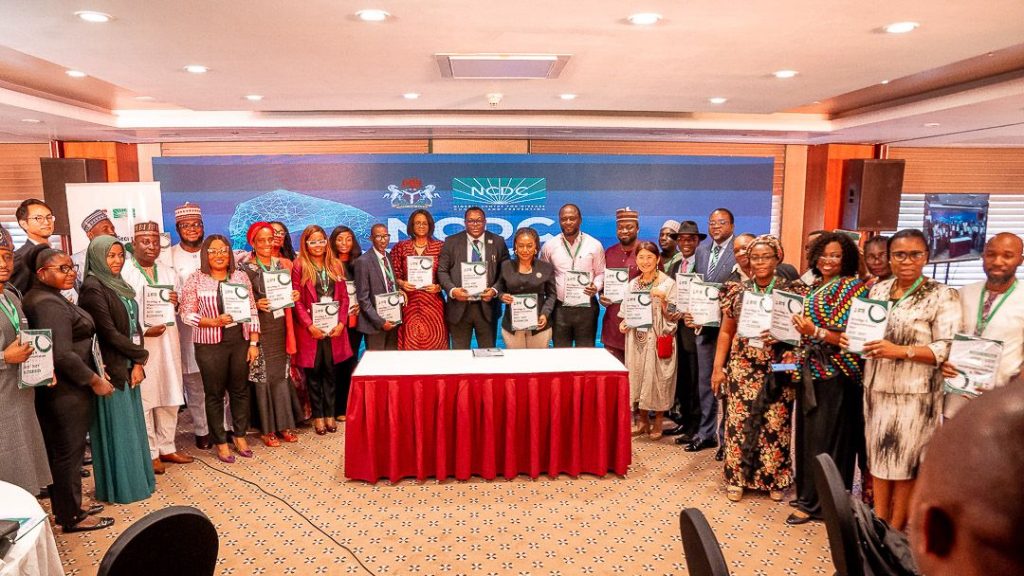The Federal Government on Tuesday launched its Strategy and Implementation Plan 2023-2027 to protect Nigerians against infectious diseases, emerging public health threats and evolving challenges.
The five-year strategic and implementation plan tagged “Vision to Action,” was launched by the Nigeria Centre for Disease Control and Prevention at its health security partners’ meeting in Abuja.
In 2022, the NCDC conducted an end-term review of the implementation of the 2017-2022 strategy, to identify successes, challenges and learnings which were built on to develop the newly launched five-year strategy.
The strategic plan includes a digital transformation agenda complemented by aspirations for high-quality crosscutting public health informatics.
The plan seeks to sustain the strong vision for the NCDC underpinned by clearly defined principles and supported by well-articulated implementation and delivery plans.
The five-year plan identified seven goals, 41 objectives, and 225 activities of the agency whereby multi-sectoral coordinated efforts of the FG, State and Local Government Areas including the private sector, and development partners would ensure an improvement and transformation of the nation’s public health security.
The NCDC Director General, Dr Ifedayo Adetifa said the new strategy is focused on systems, scaling, and sustainability leveraging the Strategic, Ambitious, Speed, and Scale approach to accelerate the impact of health security interventions in Nigeria, and helping to serve as a model to other African countries.
Dr Adetifa noted that Nigeria has been able to blaze a trail with its response to the COVID-19 pandemic.
He said, “Nigeria not only improved its Joint External Evaluation from 39 per cent in 2018 to 54 per cent in 2023, but it has also become the third country in the world to conduct the second JEE.”
The JEE is part of the tool the World Health Organisation uses to assess countries’ ability to minimise the danger and impact of acute public health events that endanger people’s health across geographical regions and international boundaries.
“In 2017, Nigeria conducted its inaugural JEE, employing the JEE 1.0 tool, which yielded a readiness score of 39 per cent. This led to the development of the National Action Plan for Health Security for the years 2018 to 2023 to address the identified gaps and recommendations arising from the 2017 evaluation.
“This year, we have successfully conducted the second Joint External Evaluation for Nigeria, resulting in a commendable score of 54 per cent for Nigeria’s health security capacity when assessed against its International Health Regulations prescribed core capacities. The significance of this 2023 second JEE cannot be overstated. It propels Nigeria to the position of being the second country in Africa and the third globally to undergo a second JEE.
“This achievement is a testament to the relentless dedication of our country, health security partners, and the tireless efforts of NCDC,” he added.
The DG stressed that the launch of the NCDC five-year strategic plan is designed to incorporate the insights and recommendations stemming from the second JEE and strengthen Nigeria’s health security.
“As we move forward, the NCDC is steadfastly committed to enhancing our public health core capabilities, particularly in the realms of surveillance, laboratory services, and response to outbreaks, ultimately fortifying the protection of our citizens from national to sub-national levels including every LGA or wards across Nigeria,” he stated.
The PUNCH reports that a performance management structure has been instituted to oversee and coordinate the execution of various initiatives to assess NCDC’s progress toward achieving its strategic goals.
The framework will prioritise and align efforts across the agency’s departments and divisions, enabling developmental partners to key in for collaboration to protect the health of Nigerians against emerging public health threats and evolving challenges.
